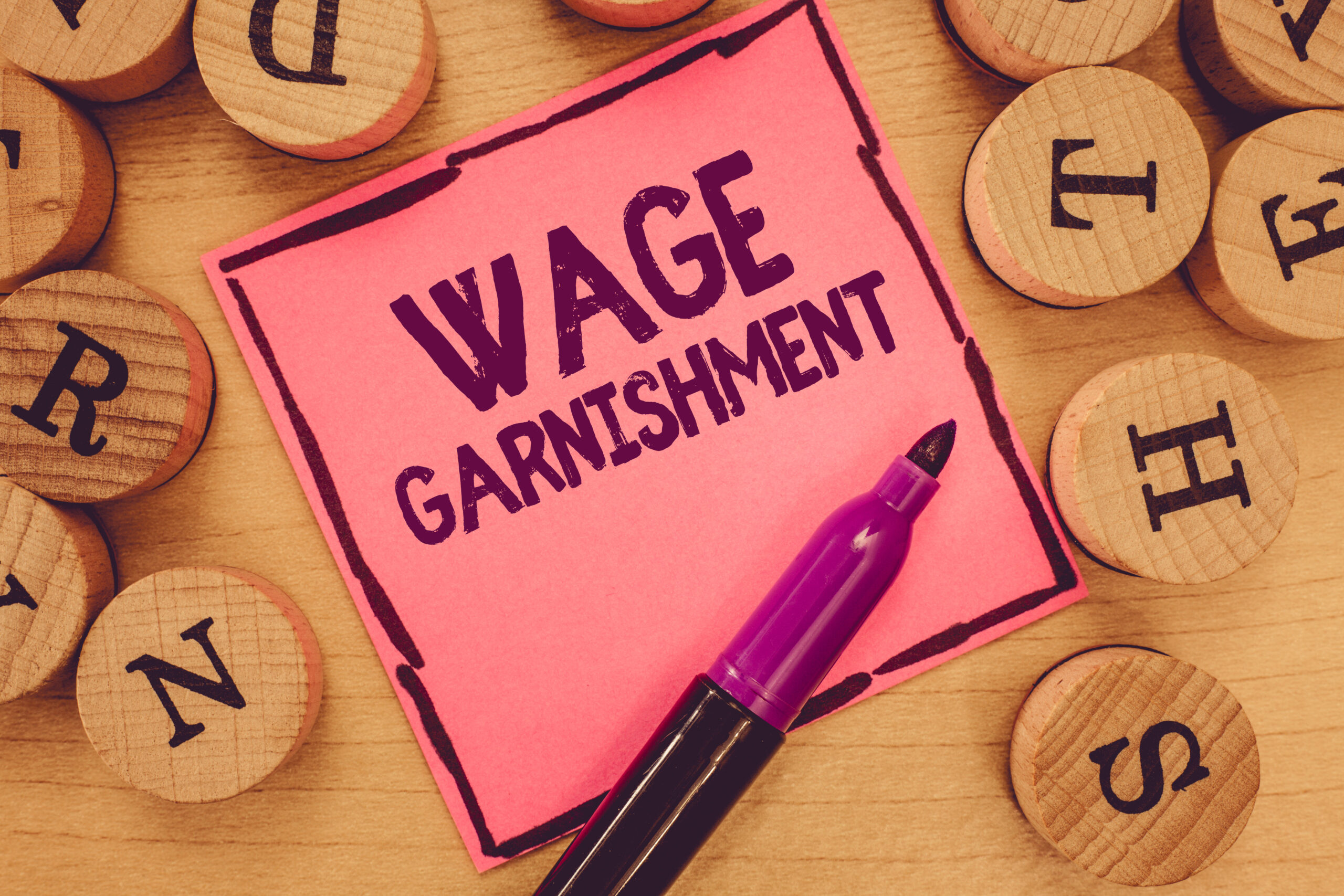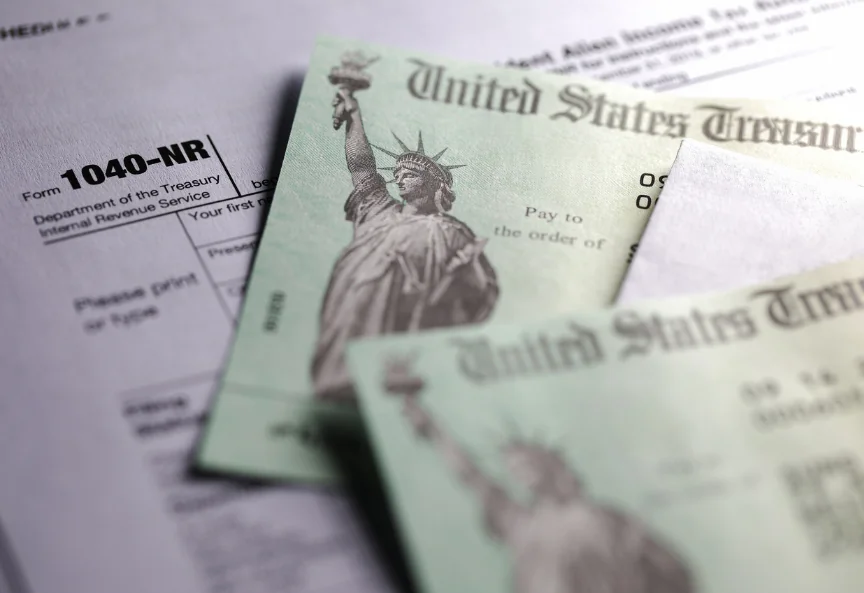According to the IRS – and tax law – paying your taxes is not optional. Failing to do so means the government can utilize certain methods to coerce payment and downright take your money before it even lands in your account. This is wage garnishment. Other commercial creditors can also garnish wages if certain conditions are met. If you fail to pay your credit card debts, at some point the credit card company can contact your employer and begin taking a cut of every paycheck.
There are limits to how much your wages can be garnished by commercial creditors and even the US government. Your wages are garnished based on your income, filing status, and the number of dependents. The IRS may not even garnish your wages if you don't earn enough. But once they start, they only stop IRS wage garnishments under a few special circumstances.
Paying your taxes is not optional. Suppose you find yourself in a situation where you owe back taxes. In that case, it's crucial to address the issue promptly to stop IRS wage garnishment, which can significantly impact your financial well-being.
When Does the IRS Garnish Wages?
The IRS does not start wage garnishment out of anywhere. The speed at which the IRS goes through the collection process may differ from case to case, depending on how much you owe. But it all begins with an important notice of overdue payment.
This will be the first of many notices the IRS may send to inform you that you owe them money. Pay attention to the date on this first notice – the tax assessment date. This is when the IRS recognizes that you owe money and the date by which your Collection Statute Expiration Date may later be calculated.
If you fail to respond to the IRS, they will continue to levy penalties and interest on your debt. Penalties for failing to pay an outstanding tax debt are incurred every 30 days, beginning with the first day you owe taxes. For failure to pay, the penalty is 0.5 percent of the principal debt every month, capping out at 25 percent.
Additionally, the IRS may issue a Notice of Federal Tax Lien. This is a notice placed on the public record that informs other creditors that the IRS’ debt takes precedence over yours. This means the IRS’ interest cannot be superseded by another creditor, limiting your ability to choose to finance or repay other debts for the time being.
At this point, if you continue to ignore the IRS, they may choose to issue a levy, beginning with a Notice of Intent to Levy. Levies take three basic forms. The IRS can either:
- Take something you own (a vehicle, a home, land).
- Empty a bank account (including savings and retirement income, Social Security benefits).
- Initiate wage garnishment.
Suppose you are employed and do not have substantial investments or assets you do not primarily rely on (such as a vacation home or multiple cars). In that case, the IRS will usually garnish your wages for debt repayment.
Can You Avoid IRS Wage Garnishment?
You can avoid wage garnishment until the last second by contacting the IRS and paying off your tax debt.
Your employer will provide a form you must complete and return within three days, listing your filing status and applicable dependents. This form will determine the amount exempt from the IRS’ wage levy.
If you cannot afford to pay your debt off in a lump sum, a few other options are still available. But it would be best if you acted fast.
Entering a Payment Plan
If you contact the IRS and set up a payment plan, the IRS will stop levying your wages. However, they will continue where they left off if you fall behind on your payments, so it’s crucial not to default on a payment plan. Furthermore, defaulting on a payment plan can make it more difficult to obtain another one.
The IRS will accept a streamlined payment plan if your debt is below a certain amount. Setting one up requires minimal details, and you can do it online via the IRS’ official website.
Debts over $50,000 must complete additional paperwork before entering a payment plan, including a Collection Information Statement providing further insight into your financial details.
Payment plans are straightforward. Your income and the length of the agreement will determine your monthly installment payment. Most payment plans default to 72 months, but you can shorten the agreement by making more extensive monthly deposits. For debts above $25,000, the IRS may also require you to agree to automatic deposits.
What If I Cannot Pay?
If paying your debt is not reasonably possible, even over a five-year period (or until the debt expires), you may consider an offer in compromise. An offer in compromise allows you to set your monthly payments based on what you can afford to pay and the time left on your debt.
The IRS will calculate your reasonable collection potential based on your financial information and determine whether your offer matches their expectations or is too low. Obtaining an offer in compromise requires you to thoroughly fill out an exceptional Collection Information Statement and installment agreement form. If the IRS rejects your offer, it may take some time for them to consider another one – so it’s essential to make it count.
If your circumstances are extraordinarily dire, or if you face imminent indigency, you may be able to get the IRS to declare you as currently non-collectible. This will halt the IRS’ collection actions until your finances improve, including IRS wage garnishment.
However, that doesn’t mean the IRS will leave you alone indefinitely. You must continue to report your income and file tax returns on time. Failing to do so may incur fines, penalties, and additional debts.
As you report your income, the IRS periodically checks in to see if your finances have improved. If they have, and you have failed to come forward to deal with your debt on your own (by engaging the IRS to organize a payment plan, for example), the agency may continue to garnish your wages.
Does Bankruptcy Work?
Bankruptcy does not shelter you from federal tax debt. Declaring Chapter 11 bankruptcy may be one of your only options to begin reorganizing and paying off your debts. However, declaring Chapter 7 bankruptcy may not wipe out tax debt the way it can wipe out most types of consumer debt.
A federal income tax debt is usually a non-dischargeable debt, and it is also a priority debt. If you seek to liquidate through a Chapter 7 bankruptcy, your tax debt will be one of the debts treated with utmost urgency. But if you cannot pay it off fully with what you still own, you will continue to owe the IRS under most circumstances.
Taxpayers facing trouble with the IRS should note that a tax debt expires after ten years. However, the IRS may extend that period for a certain length or add time to it depending on the circumstances of your repayment or failure to repay.
For example, if you’re overseas for an extended time, the IRS can stop the clock on your debt until you return. If you declare bankruptcy, time on your debt won’t begin to run out until six months after your bankruptcy proceedings have concluded.
Intentionally avoiding your responsibility to pay taxes does allow the IRS to come after you with criminal charges. However, the IRS rarely does so for simple late tax returns or low-tax debt cases. But don’t tempt them. You’re always better off trying to find a way to deal with your debt as quickly as possible rather than putting it off or ignoring it altogether.
Thankfully, you’ve come to the best. Rush Tax Resolution can help you with any and all tax debt issues and bring you back on good terms with the federal government. In some cases, taxpayers may not be aware of the steps they can take to stop IRS wage garnishment, which can lead to unnecessary financial stress. By seeking professional guidance and assistance from experts like us, you can explore various options to resolve your tax debt and stop IRS wage garnishment from affecting your financial stability.
Call us today to find out how we can help you with your tax debt problems and stop IRS wage garnishment.











